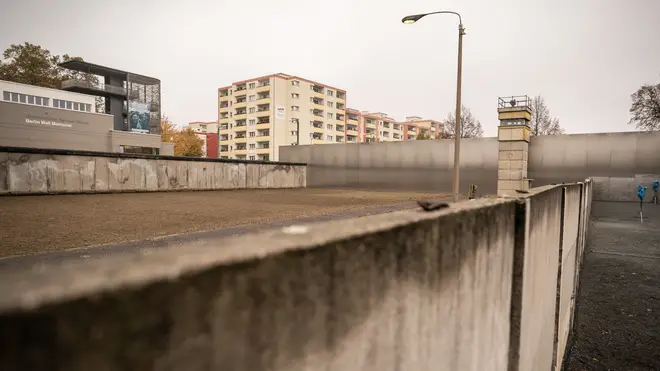
Ian Payne 4am - 7am
9 November 2019, 09:56 | Updated: 9 November 2019, 09:59
It's 30 years since the Berlin Wall fell. A german journalist spoke to Andrew Castle about her memories of the event and what it means for Germany now.
Andrew Castle asked what Stefanie Bolzen's memories were of the time that the Berlin Wall fell.
He said: "For me, it was the speed and the pace. There was such an elation and an inspiring feeling at the time."
Bolzen, the London Correspondent for Die Welt, replied: "I must admit I was quite young then, I was 15 and I lived in the the very west on the border to the Netherlands.
"But I do remember that night very much and I remember my mother cutting out, the next day, all the coverage and saying look at the photos and look at the people who have climbed the wall in Berlin.
This is amazing and people will talk about this for years and years to come. And actually now that I'm much older, obviously, listening to to the quote of Reagan, it just causes goose pimples because, if you think about it, that this was possible in such a short time. Without any bloodshed. This is amazing."
Andrew Castle asked about there still being divisions that can be traced back to a time before the wall fell.

Bolzen said: "Yes, of course, and they were obviously two different systems and people spoke the same language but they have been living for 40 years in completely different systems.
"I just looked into polls that have been done in the days now, before the 30 years anniversary, and 49 per cent of East Germans still say they are treated by the West Germans as citizens of second class.
"So there is a lot of discontentment in East Germany, it is not so much economic actually. Unemployment is very low. Economically, the data is very good, but as many LBC listeners will also know, recently, the far-right AfD party has gained ground, massive ground now 25 per cent of regional Parliament's are in the hands of this right0wing anti-immigrant party.
And this reflects the tension in East Germany and I think Germany is at the point that it's a generation that has passed and and there's a lot of self-reflection."
Andrew spoke about contemplating the sorts of stories of people who "had the rug pulled form under them".
Bolzen replied: "I mean, to be fair, I think, of course, there was a lot of awareness how the so fast change of system broke many lives because people just couldn't catch up.
"It was suddenly confronted with the tenets of capitalism with competition, while until then you were living in a very cosy system.
"In a way cosy because you, if you were a good citizen only, of course, you were provided your car, your job, and everything was was systemized and controlled.
"That was the very point. I mean, research has shown that every 10 citizens in the GDR was working for the Stasi - for the state security.
"So it was a complete state of control, there was no freedom to think, no freedom to travel.
And so looking back, yes, of course, it's very difficult and you should appreciate how hard it was with people but they achieved freedom and I think personally that is the bigger good."